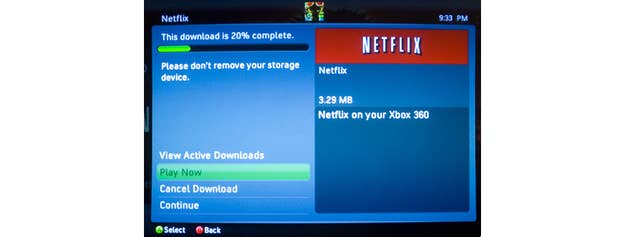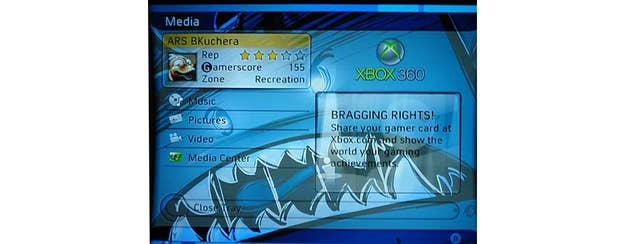
It seems impossibly long ago, but the Xbox 360 came out in 2005. November 22, 2005, to be exact — the same day Angela Merkel was elected the first female chancellor of Germany, a day before Italy announced it would be pulling its troops out of Iraq. "My Humps" was number three on the Billboard Hot 100. Facebook still required a school email address and the smartest phone you could buy was a Palm Treo.
If you bought an Xbox the day it was released, it would have cost you $300 — $400 if you wanted built-in storage. (You probably did.) It could play videos through Windows Media Center, and MP3s from an external hard drive, but really, this was a machine for playing games. Call of Duty 2, mostly.
The Xbox hardware has changed subtly over the intervening seven years, first with bumps in storage and finally with a redesigned case. But as a piece of gear, it's nearly the same. Assuming it didn't succumb to the Red Ring of Death, an Xbox bought in 2005 would play all the games announced at E3 today.
The Xbox 360, old enough to be starting second grade, still doesn't feel outdated. This is because Microsoft has slowly, but completely, changed what its console can do, changing it from a spec-pumped followup to the original Xbox into the first unified living room entertainment box. Tomorrow's Microsoft console is equal parts Apple TV, cable box and gaming console — and worlds better than any of them. It puts (or rather, keeps) Microsoft miles in front of Sony and Nintendo and, more important, Apple, in the race to take over the living room. Google doesn't even rank.
It also fundamentally changes what Microsoft is as a company — this is its next Windows, or its next Office — and it all started in 2008, nearly three years to the day after the Xbox debuted, with a software update.
Xbox firmware 2.0.7357.0, known as "NXE," (New Xbox Experience) set the stage for the next four years of Xbox, and for the next 20 years of Microsoft. It's when the Xbox interface went from this:

To this:

And when the official Microsoft line on what the Xbox is went from this:
"With the first generation of Xbox, our ambition was to change the way people think about video games," said Robbie Bach, chief Xbox officer at Microsoft. "Starting today with Xbox 360, our ambition is to transform the way people play games and have fun."
To this:
In 1954, the introduction of color TV heralded the dawn of a new era in entertainment. [M]ore than 50 years after that dramatic shift, a new era in home entertainment begins with the New Xbox Experience as millions of Xbox 360™ consoles will transform instantly through the power of software. A bold new future begins now, where high definition entertainment is delivered in an instant, the best games share the stage with the best movies, and every experience is shared with friends and families, in the same room or around the world.
It's when Microsoft decided that, from that point forward, the Xbox was going to be a media box first, and a gaming console second. The company was going to own cord-cutting, which, at the time, had barely joined the tech lexicon. This was also the first time Microsoft had an edge on its biggest competitors in long time, an edge it's quitely kept through a disheartening series of other gadget failures. Microsoft has quietly racked up 67 million Xbox sales; the Apple TV has sold fewer than ten million since launch.
NXE brought in Netflix streaming, as well as a handful of other media apps, and looked quite a bit like Windows Media Center. It wasn't a night-and-day change, and not everyone loved it. But this was the moment that Microsoft, to borrow Steve Jobs' words, "cracked it." Microsoft had decided to become an entertainment company; this fall, when the the Xbox is updated with a full stable of sports content, Airplay-style streaming from Microsoft, Android and iOS devices, full web browsing on the TV and, most importantly, a roster of new video content apps, is when it will finally come to pass.

